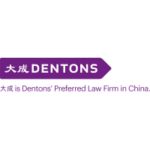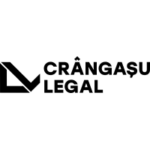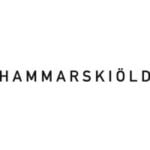-
Overview
Merger control rules in the United Arab Emirates are governed by the Federal Decree-Law No. 36 of 2023 on the Regulation of Competition, (the ‘UAE Competition Law’), supplemented by Cabinet Resolution No. 3 of 2025, which introduced turnover-based filing thresholds in March 2025. These new instruments repealed and replaced the previous Federal Law No. 4 of 2012 and its associated implementing decisions, including Cabinet Decision No. 13 of 2016 on notification ratios and controls. However, certain earlier instruments – notably Cabinet Resolution No. 37 of 2014 – continue to apply to the extent they are not inconsistent with the new framework.
The UAE Competition Law applies to “Economic Concentrations,” defined as any transaction that results in the full or partial transfer of ownership, usufruct rights, or usage rights over property, rights, shares, stocks, or obligations from one undertaking to another, in a manner that gives an undertaking direct or indirect control over another. This captures mergers and acquisitions of control. While joint ventures are not expressly referenced, structures involving the transfer of shares or control rights to a newly created entity may fall within scope if they amount to such a transfer of control.
The Ministry of Economy (the MoE), through its Competition Department, is the competent authority for merger control. Unlike some jurisdictions in the region, there is not yet a separate independent competition authority, but the MoE has been strengthening its resources and practice as the new regime takes effect.
Notification is mandatory where the statutory thresholds are met. Transactions caught by the regime may not be completed until clearance is obtained. The review period consists of an initial 90 calendar days, which may be extended by a further 45 calendar days for complex cases. In practice, straightforward cases are often cleared more quickly. Filing requirements are not unusual in substance, but the supporting documentation is burdensome. Parties must provide corporate documents, audited financials, and market information, alongside supporting materials that often require notarisation, legalisation and, where necessary, translation. At present there is no simplified filing form or fast-track procedure for straightforward cases, although the Competition Department has signalled it is working on developing such a process.
A key feature of the UAE regime is that the turnover thresholds are applied with reference to revenues in the relevant market within the UAE, rather than by reference to the parties’ total UAE turnover. This is unusual compared to many international systems and can mean that a transaction escapes notification even if the parties have substantial UAE sales, provided those sales are below the relevant thresholds in the relevant market in the UAE in which the Economic Concentration occurs.
-
Is notification compulsory or voluntary?
Notification is compulsory in the United Arab Emirates where a transaction qualifies as an Economic Concentration and meets the jurisdictional thresholds. Clearance from the MoE must be obtained before the transaction can be implemented.
The only exemption from this obligation applies to undertakings expressly excluded from the scope of the Competition Law under Article 4 of the UAE Competition Law. These are state-owned or government-controlled entities, whether at the federal or emirate level, that have been formally listed by decision. To date, two lists have been published: one covering federal government-owned entities (Cabinet Resolution No. 33/6F of 2024) and another covering entities owned by the Emirate of Ajman (Executive Council Resolution No. 6 of 2024). Equivalent lists for the other emirates are expected but have not yet been issued.
Unlike under the previous regime, there are no longer any sector-wide exemptions (for example, for telecommunications, oil and gas, or transport). Exemptions must now be granted on a case-by-case basis, unless an undertaking appears on one of the formal lists described above.
-
Is there a prohibition on completion or closing prior to clearance by the relevant authority? Are there possibilities for derogation or carve out?
Yes. In the United Arab Emirates, transactions that qualify as an Economic Concentration and meet the jurisdictional thresholds may not be completed until clearance has been obtained from the MoE. The prohibition on closing covers any act that would give rise to the change of control, whether through the acquisition of shares, assets, or contractual rights.
There are no statutory derogations from this standstill obligation. The law does not provide a mechanism for granting waivers to allow early completion, even on public interest or financial stability grounds. The legislation is also silent on whether parties may structure a global deal so that UAE assets or subsidiaries are carved out and transferred only after clearance. In practice, such solutions would need to be considered carefully on a case-by-case basis, as the MoE has not issued guidance on the acceptability of hold-separate, trustee, or deferred-completion arrangements.
Public bids are also subject to the standstill obligation: the acquirer cannot take steps to exercise control or complete the acquisition of UAE shares or assets until clearance is issued.
-
What types of transaction are notifiable or reviewable and what is the test for control?
The UAE Competition Law does not prescribe a formal shareholding threshold or a detailed definition of control. In practice, control will generally be understood as arising where an undertaking gains the legal ability to determine, or materially influence, the strategic decisions of another undertaking through ownership rights, usage rights, or contractual arrangements. Acquisitions of minority shareholdings that do not confer such rights would in practice therefore not considered Economic Concentrations.
Notifiable transactions include mergers of undertakings, acquisitions of shares or assets that transfer control, and the creation of new structures where shares or rights are transferred in a way that confers control.
The UAE Competition Law does not expressly address intra-group transactions. Since an Economic Concentration requires a transfer that results in one undertaking acquiring control over another, a strong argument can be made that purely internal reorganisations within a group under common ultimate ownership should fall outside the regime. However, there is not yet formal guidance from the MoE confirming this interpretation.
-
In which circumstances is an acquisition of a minority interest notifiable or reviewable?
Yes, minority interests can be caught under the UAE Competition Law if they give rise to “control.” The legislation does not define control and does not establish a minimum percentage of shares or voting rights below which control can safely be ruled out.
In practice, control is likely to be interpreted broadly and may arise not only from a majority shareholding but also from rights attached to a minority interest that allow an investor to determine or block strategic decisions of the target. These may include veto rights over matters such as the approval of budgets or business plans, or the appointment of senior management.
There is no published case practice in the UAE identifying the lowest level of shareholding that has been treated as conferring control. The treatment of de facto control – for example, through low shareholder turnout at meetings or alignment of interests between minority shareholders – has also not yet been formally tested.
On this basis, purely financial minority investments that do not confer rights to influence the strategic direction of the business should not normally be notifiable. However, acquisitions of minority stakes that are accompanied by governance or veto rights over key decisions could be considered Economic Concentrations and should be assessed carefully against the filing thresholds.
-
What are the jurisdictional thresholds (turnover, assets, market share and/or local presence)? Are there different thresholds that apply to particular sectors?
A transaction that qualifies as an Economic Concentration is notifiable in the UAE if it meets one of the two alternative thresholds introduced by Cabinet Resolution No. 3 of 2025:
- Turnover threshold: the annual sales of the concerned undertakings in the relevant market in the UAE during the last fiscal year exceed AED 300 million. This is unusual compared with many international regimes, where thresholds are based on overall national turnover rather than turnover in the relevant market. It remains unclear whether “relevant market” should be interpreted narrowly (limited to products and services directly linked to the transaction) or more broadly, and further guidance from the MoE is awaited.
- Market share threshold: the combined market share of the concerned undertakings exceeds 40% in the relevant market in the UAE during the last fiscal year.
The undertakings taken into account are those directly involved in the concentration (the acquirer and the target, or merging entities). The seller’s wider group turnover is in practice not included unless it will retain control post-transaction. The UAE Competition Law does not clarify whether turnover should be aggregated across all entities under common control. In the absence of guidance, the prudent approach is to calculate turnover on a group-wide basis, in line with international competition law standards.
It also remains uncertain whether the turnover threshold can be satisfied by the acquirer’s sales alone. In principle, a notifiable concentration presupposes some effect in the UAE, but the MoE has not yet taken a public position on this. By contrast, the turnover threshold would clearly be met if the target alone had more than AED 300 million in UAE sales in the relevant market. For the market share threshold, the Cabinet Resolution does not specify that both parties must be active in the same market. This creates uncertainty as to whether the threshold could be triggered by one party’s market share exceeding 40% on its own. In practice, further guidance from the MoE is expected.
The thresholds are set by Cabinet Resolution and are not automatically updated. They apply across all sectors of the economy. There are no sector-specific thresholds, although undertakings expressly exempted under Article 4 of the UAE Competition Law (as set out in response to Question 2) remain outside the regime.
-
How are turnover, assets and/or market shares valued or determined for the purposes of jurisdictional thresholds?
The UAE Competition Law and Cabinet Resolution No. 3 of 2025 do not provide detailed rules on how turnover or market shares should be calculated.
Turnover is assessed with reference to the last completed fiscal year. Cabinet Resolution No. 3 of 2025 requires turnover in the relevant market in the UAE, but does not specify how it should be allocated geographically. The prudent approach is to count all sales to customers located in the UAE, including direct exports, even where the supplying undertaking is established abroad.
For the market share test, the combined share of the parties is assessed in the relevant market in the UAE during the last fiscal year. The legislation does not prescribe how the relevant product and geographic market should be defined. In practice, companies are expected to rely on international standards for defining markets and calculating shares. However, the regime is still new, the MoE does not publish its decisions, and therefore there is no visibility over its decisional practice.
Given these uncertainties, the MoE has shown a willingness to engage in consultations, and parties are encouraged to raise methodology questions in advance where appropriate. Until guidance or case practice emerges, the conservative approach is to apply cautious assumptions and be ready to explain the basis for turnover and market share calculations.
-
Is there a particular exchange rate required to be used for to convert turnover thresholds and asset values?
The UAE Competition Law and Cabinet Resolution No. 3 of 2025 do not specify how foreign currency turnover should be converted into dirhams. In practice, parties are advised to use the official exchange rates published by the UAE Central Bank and to apply the average rate for the relevant fiscal year.
As a reference, the UAE dirham is pegged to the US dollar at USD 1 = AED 3.6725.
-
In which circumstances are joint ventures notifiable or reviewable (both new joint ventures and acquisitions of joint control over an existing business)?
The UAE Competition Law does not expressly refer to joint ventures. A joint venture may nevertheless qualify as an Economic Concentration if it involves the transfer of ownership or rights that confer joint control on the parents. This applies both to the creation of a greenfield joint venture and to the acquisition of joint control over an existing business.
There are no separate thresholds for joint ventures: the standard turnover and market share tests apply. The undertakings taken into account are the joint venture vehicle and its parent companies. The seller’s wider group is not included unless it retains control.
The Competition Department has explained that it is still building its decisional practice, including in relation to joint ventures. While it is generally expected that, in line with international standards, only full-function joint ventures – those operating on a lasting basis as autonomous businesses with sufficient resources – would fall within merger control, the precise definition and criteria to be applied by the authority have not yet been tested. It therefore remains possible that the authority may take a broader or narrower view in practice, depending on how it chooses to interpret the operational independence of the venture.
At the same time, joint ventures in general are expected to remain subject to the prohibition of restrictive agreements under Article 5 of the UAE Competition Law. This means that cooperation linked to the joint venture – whether between the parents themselves or between the joint venture and its parents – may be reviewed under Article 5 if it has the object or effect of restricting competition.
An additional uncertainty is whether the jurisdictional thresholds may be satisfied by the parents’ UAE turnover alone, even if the joint venture itself has no current or planned UAE activities. The legislation could be read this way, but it would be unusual internationally for a transaction to be notifiable without any nexus to the local market. Businesses are therefore advised to proceed cautiously and, where appropriate, seek clarification from the MoE before deciding not to notify.
-
Are there any circumstances in which different stages of the same, overall transaction are separately notifiable or reviewable?
The UAE Competition Law does not provide specific rules on whether different stages of the same overall transaction must be notified separately. The law refers broadly to Economic Concentrations, defined as transactions involving the transfer of ownership, usufruct or usage rights that confer control.
In practice, the expectation is that the MoE would assess a series of inter-dependent steps forming part of a single overall transaction as one Economic Concentration, rather than requiring separate notifications for each step. There is no public decisional practice on this point, and the Competition Department has not issued guidance on how complex structures such as consortium acquisitions, multi-step restructurings or special purpose vehicles will be treated.
Where transactions are genuinely independent and not inter-conditional, they could in principle each constitute a separate Economic Concentration. In such cases, a separate filing could be required for each, though this has not yet publicly been tested in practice.
-
How do the thresholds apply to “foreign-to-foreign” mergers and transactions involving a target / joint venture with no nexus to the jurisdiction?
The UAE Competition Law applies to any Economic Concentration that meets the jurisdictional thresholds, regardless of where the parties are incorporated. There is no separate regime for “foreign-to-foreign” mergers.
The thresholds are assessed with reference to sales and market share in the relevant market in the UAE. This means that a transaction will only be caught if at least one of the parties generates turnover in the UAE in the relevant market, or if their combined market share in that market exceeds 40%.
An area of uncertainty is whether the turnover threshold could be met by the UAE sales of an acquiring group alone, even if the target or joint venture has no presence or sales in the UAE. The legislation could be read this way, but it would be unusual internationally for a transaction to be notifiable without any local nexus. The Competition Department has not yet taken a public position on this point, and no enforcement action against “no nexus” transactions has been publicly reported.
Until the authority’s decisional practice develops, the prudent approach is to assume that some local sales in the relevant market are required for notification, and to raise any borderline cases in consultation with the MoE.
-
For voluntary filing regimes (only), are there any factors not related to competition that might influence the decision as to whether or not notify?
Not applicable.
-
What is the substantive test applied by the relevant authority to assess whether or not to clear the merger, or to clear it subject to remedies?
The UAE Competition Law prohibits Economic Concentrations that may create or strengthen a dominant position which could significantly reduce or prevent competition in the relevant market. The MoE applies this test by examining whether the transaction would restrict, harm or prevent competition.
Although the legislation does not set out a detailed analytical framework, the authority is expected to consider the main competition effects commonly assessed in other jurisdictions, including:
- Horizontal effects, such as market share increases, risk of unilateral conduct and coordinated behaviour;
- Vertical effects, such as foreclosure of upstream or downstream rivals; and
- Conglomerate effects, where relevant.
The Competition Department has not issued substantive guidelines, and no detailed decisions are published. However, the MoE has confirmed on its website that several transactions have been approved subject to conditions or remedies, showing that it is willing to impose commitments to address competition concerns.
There are no sector-specific substantive tests (such as for example media plurality). Overall, the UAE approach is broadly aligned with international standards, though there remains a degree of uncertainty until more decisional practice is made public.
-
Are factors unrelated to competition relevant?
The substantive test under the UAE Competition Law is framed in purely competition terms: whether an Economic Concentration would create or strengthen a dominant position that could significantly reduce or prevent competition in the relevant market.
The legislation does not provide for the assessment of wider public interest factors such as employment, industrial policy, media plurality or national security. There are no published cases suggesting that the MoE has considered such factors in its merger control assessments.
That said, transactions in certain sectors may also be subject to separate regulatory or foreign investment approvals which can involve broader policy considerations. For example, acquisitions in banking or insurance require approval from the UAE Central Bank, while certain investments in strategic sectors may be subject to foreign ownership restrictions or review under Emirate-level licensing rules. These approvals fall outside the scope of merger control and are assessed under different legal frameworks.
-
Are ancillary restraints covered by the authority’s clearance decision?
The UAE Competition Law and its implementing rules do not contain specific provisions on ancillary restraints, and the MoE has not yet published guidance or decisional practice on this point.
As a result, ancillary restrictions are not automatically deemed cleared as part of a merger approval. Parties are expected to self-assess such arrangements under the UAE Competition Law’s prohibition of restrictive agreements.
In the absence of formal guidance, it is prudent to rely on international standards when assessing ancillary restraints. Typically, non-compete obligations will be considered permissible where they are directly related and necessary to the transaction – for example, to protect the value of the transferred business – and limited in scope, duration and geography. By analogy to international practice, a non-compete covenant imposed on the seller would generally be considered proportionate if limited to the activities of the target business, the markets in which it operates, and for a period of up to three years where goodwill and know-how are transferred (or two years if only goodwill is transferred).
Until the MoE develops guidance or decisional practice, parties should structure ancillary restraints conservatively and be prepared to justify their necessity and proportionality.
-
For mandatory filing regimes, is there a statutory deadline for notification of the transaction?
The UAE merger control regime is a mandatory, suspensory system, but the UAE Competition Law does not set a statutory deadline by which parties must submit their filing after signing. The key legal requirement is that the transaction cannot be implemented until clearance has been obtained.
-
What is the earliest time or stage in the transaction at which a notification can be made?
The UAE Competition Law does not specify the earliest stage at which a filing can be submitted. Under the current implementing regulation, the notification must include the draft or signed agreement giving rise to the concentration.
In practice, the Competition Department has indicated that it can accept notifications on the basis of a signed term sheet or draft agreement, provided that the filing specifies the date on which the binding agreement is expected to be signed. This allows parties to start the review process before final execution, provided that the key elements of the transaction (structure, scope, parties and timing) are sufficiently clear. Once the agreement is signed, the parties must update the MoE with the final version.
-
Is it usual practice to engage in pre-notification discussions with the authority? If so, how long do these typically take?
There is no formal pre-notification procedure under the UAE Competition Law. In practice, however, the MoE will only start the statutory review period once it considers the filing to be complete. The time taken to reach that point can vary significantly, depending on the completeness of the submission and the MoE’s workload.
For straightforward cases, this initial period can be relatively short, but it is not unusual for several weeks to pass before the MoE confirms that the file is complete and the review clock starts. For more complex transactions, or where supporting documents need clarification, the process can take longer. As a result, parties should plan for some flexibility and build in additional time at the start of the review process, particularly given the requirement for notarised, legalised and, where applicable, translated supporting documents.
-
What is the basic timetable for the authority’s review?
Once the MoE accepts a filing as complete, it has 90 calendar days to issue a decision. If no decision is issued within that period, the filing is deemed rejected — there is no deemed clearance, which is unusual compared to many other merger control regimes where silence results in automatic approval.
The 90-day clock runs only after the MoE considers the notification complete; the pre-acceptance completeness phase can vary in length. There are no formal Phase I/Phase II stages—the MoE conducts a single review and may request additional information as needed.
-
Under what circumstances may the basic timetable be extended, reset or frozen?
The MoE has 90 calendar days to review a concentration once a complete notification is accepted. This period may be extended by up to 45 calendar days where the transaction requires further examination, such as where remedies are offered or competition concerns are identified.
The timetable may also be interrupted in specific circumstances. The review clock stops running if:
- the MoE requests additional information from the notifying parties to verify the concentration;
- the MoE seeks a technical opinion or information from another authority; or
- a stakeholder appeal is filed against the MoE’s decision to consider an Economic Concentration under review.
In each case, the timetable resumes only once the requested information or opinion is received, or the appeal is resolved.
-
Are there any circumstances in which the review timetable can be shortened?
The UAE Competition Law does not provide for any mechanism to shorten the statutory review timetable. There is currently no fast-track or simplified procedure for straightforward or non-problematic cases, and the MoE has not published guidance on early clearance. In practice, while the MoE may issue a decision in less than the full 90-day period, this cannot be guaranteed, and the authority often takes close to the full review period even for straightforward transactions.
The MoE has indicated that it is working on developing a fast-track procedure, but this has not yet been introduced. For now, parties should plan on the basis of the standard timetable.
-
Which party is responsible for submitting the filing?
The UAE Competition Law requires the undertakings concerned in an Economic Concentration to notify the MoE. The legislation does not define this more narrowly, and on a literal reading any party to a notifiable transaction could in principle be penalised if a filing is not made.
In practice, the notifying party is usually the acquirer in an acquisition, while in mergers and the creation of joint ventures the parties typically submit a joint notification. The MoE expects cooperation from all undertakings involved, and supporting documents may be required not only from the acquirer and target but also from the seller.
-
What information is required in the filing form?
The UAE filing form requires standard information on the transaction and the parties, including the identity of the undertakings, ownership structures, details of the transaction and its rationale, turnover in the relevant market, and information on competitors, customers and suppliers. The form itself is not unusually detailed compared to other jurisdictions. The MoE may request additional information if it considers the submission incomplete or if further clarification is needed to verify the competitive assessment.
There is currently no short-form or simplified notification procedure for straightforward or low-risk cases. The MoE has indicated that it is working on developing a fast-track process, but this has not yet been implemented.
-
Which supporting documents, if any, must be filed with the authority?
The UAE merger control regime requires a relatively extensive set of supporting documents, many of which must be notarised and, if executed abroad, legalised. These typically include:
- Power of attorney: a notarised power of attorney is mandatory for the party’s authorised representative. If executed outside the UAE, it must also be legalised (and, where applicable, apostilled).
- Corporate documents: certificates of incorporation and articles of association (or equivalent constitutional documents) for each party to the transaction.
- Financial statements: audited financials or annual reports for the most recent fiscal year for each party.
- Transaction documents: the draft or signed transaction agreement, or in practice a binding term sheet accompanied by an indication of the expected signing date.
- Economic report: a competitive assessment the transaction and its effects on the relevant market must be submitted in all cases, even where the transaction is straightforward and does not raise any competition concerns.
While the law provides that all documents must be translated into Arabic by a sworn translator, the Ministry of Economy has at times accepted filings and supporting materials in English. The extent to which this flexibility will continue remains to be seen as the new regime matures.
There is no express rule on the age of documents, but incorporation certificates and powers of attorney must be recent, and financials must cover the latest audited year.
The notification must be signed either by the parties or by their authorised legal representative, in which case a notarised power of attorney must be provided.
-
Is there a filing fee?
At present, there is no filing fee for merger notifications in the UAE.
The MoE has indicated publicly that it is working on establishing a fee regime, but this has not yet been implemented.
-
Is there a public announcement that a notification has been filed?
The UAE merger control regime does not provide for a public announcement when a notification is submitted. Notifications are treated as confidential during the review process.
The MoE does, however, maintain a table of Economic Concentration cases on its website. This table records cases that have been decided and indicates whether they were approved, approved with conditions, or prohibited. It does not appear to be updated in real time, and publication seems to take place only after a decision has been issued, rather than at the point of filing.
-
Does the authority seek or invite the views of third parties?
The UAE Competition Law allows the MoE to seek input from third parties during its review of an Economic Concentration. The law provides that the MoE may request information or opinions from relevant stakeholders, and Article 14 of the UAE Competition Law expressly foresees that observations from parties with a legitimate interest can be taken into account.
There is no statutory exemption for transactions that appear unproblematic. In practice, the extent of consultation is likely to vary depending on the complexity of the case, the sector involved, and the MoE’s workload. As the MoE has not published guidance or decisional practice, it is too early to predict a consistent approach.
The MoE may contact customers, competitors, suppliers, industry associations or other regulators to obtain their views. Such consultations would usually take place once the filing has been accepted as complete and the substantive review is underway.
The process is not formalised in published guidance, and the MoE has not yet developed a consistent pattern of market testing. For now, third-party input is considered at the MoE’s discretion on a case-by-case basis.
-
What information may be published by the authority or made available to third parties?
The UAE merger control regime is characterised by a high degree of confidentiality.
The MoE does not publish the notification form, supporting documents or the parties’ submissions. These remain confidential and are not made available to third parties.
The only public disclosure is through the MoE’s website, which maintains a table of decided cases. This table lists the names of the parties and the outcome (approved, approved with conditions, or prohibited). It does not include the text of the decision, the MoE’s reasoning, or any market data. Publication appears to take place only after a decision has been issued, and not at the time of filing.
-
Does the authority cooperate with antitrust authorities in other jurisdictions?
The MoE participates actively in regional and international cooperation initiatives. It is a member of the Arab Competition Network, which promotes policy coordination and capacity building among competition authorities in the region. The MoE has also signed bilateral memoranda of understanding, including with the Egyptian Competition Authority, to support dialogue, training and non-confidential information exchange. Reflecting its growing leadership role, the UAE will host the 2026 Arab Competition Forum in Dubai in May 2026, in collaboration with UNCTAD and the Arab Competition Network.
These arrangements are primarily directed at policy-level cooperation, rather than joint decision-making. The UAE Competition Law does not expressly provide for the exchange of confidential case information with foreign authorities, nor does it oblige parties to grant waivers. That said, it cannot be excluded that the MoE may engage in informal exchanges within the framework of its MoUs, particularly in cross-border cases.
-
What kind of remedies are acceptable to the authority?
The MoE has the power to approve an Economic Concentration subject to conditions or commitments designed to address competition concerns. Both structural and behavioural remedies are, in principle, possible.
To date, the MoE has published limited information on its decisional practice. The cases disclosed on the MoE’s website confirm that transactions have been cleared subject to conditions, but the precise nature of these remedies has not been made public. As such, it remains unclear whether the MoE has a preference for structural over behavioural remedies, or how it applies international standards on proportionality and effectiveness.
Given the early stage of the UAE regime, businesses may find that the MoE adopts a flexible, case-by-case approach, seeking commitments tailored to the specifics of each transaction and informed by comparative international experience.
-
What procedure applies in the event that remedies are required in order to secure clearance?
The UAE Competition Law permits the MoE to approve an Economic Concentration subject to conditions. As noted above (see Q 30), published cases confirm that conditional clearances have been granted, but the nature of those remedies has not been disclosed.
There is no detailed procedure set out in the law or regulations. Remedies must be offered by the parties, and may in principle be accepted at any stage of the review. There are no statutory deadlines, no formal market testing process, and no mechanism for the MoE to waive remedies on the basis that commitments were agreed in another jurisdiction.
In practice, the process remains highly discretionary and is handled on a case-by-case basis. Further guidance from the MoE is expected to clarify these aspects of the regime.
-
What are the penalties for failure to notify, late notification and breaches of a prohibition on closing?
The UAE Competition Law provides for significant sanctions in cases of non-compliance. Failure to notify a notifiable Economic Concentration, notification after completion, or closing prior to clearance may all give rise to penalties.
Fines range from 2% to 10% of the annual turnover of the undertaking concerned in the UAE, or, where turnover cannot be calculated, a fixed fine of AED 500,000 to AED 5 million. Liability rests with the “concerned undertakings,” meaning that in principle any party to the transaction may be sanctioned (buyer or target, and in some cases seller).
At present, the MoE is not empowered to impose fines directly. Instead, infringements must be referred to the Public Prosecutor, who has discretion to decide whether to pursue proceedings and apply penalties. The MoE has publicly indicated that it is working on an administrative penalty regime (as foreseen in Article 23 of the UAE Competition Law), which would enable it to enforce sanctions itself, but this has not yet been implemented.
Beyond monetary fines, the courts may impose additional sanctions. They may order the confiscation of revenues or assets obtained through the violation, or the publication of the judgment at the expense of the infringing undertaking in up to two daily newspapers. In serious cases, the courts may also order the suspension of business activities for up to six months or the permanent closure of the establishment. Managers or directors may also be held personally liable if it is shown they had knowledge of, and consented to, the infringement. Judgments can be appealed through the UAE courts.
The law does not provide for imprisonment, nor does it automatically render a transaction void. However, if a transaction is implemented without the required clearance, the MoE may refer the infringement to the Public Prosecutor, and the competent court may impose monetary fines and, in principle, order corrective measures, although the law does not expressly empower the MoE itself to unwind a non-notified transaction. By contrast, competition authorities in the region, i.e., in Saudi Arabia and Egypt have broader administrative powers to impose fines and, where necessary, order divestiture or unwinding of unnotified concentrations. This gap is widely expected to be addressed in upcoming executive regulations or amendments, which may introduce administrative fines and remedial powers to align the UAE regime with regional and international practice..
-
What are the penalties for incomplete or misleading information in the notification or in response to the authority’s questions?
Providing incomplete, incorrect or misleading information (or destroying information relevant to the review) is punishable by a fine of AED 50,000–500,000. Courts may also order publication and temporary closure in serious cases, and general penalty-aggravation principles apply under the law. Separately, the MoE can interrupt the review timetable until requested information is provided, creating material delay risk in addition to fines.
-
Can the authority’s decision be appealed to a court?
Yes. Decisions of the MoE on Economic Concentrations may be challenged, but a two-step process applies.
- First, any stakeholder may file a written complaint with the MoE (or the relevant authority/regulator) within 15 working days of being notified of the decision. The MoE must decide within 30 calendar days; if no response is issued within that period, the complaint is deemed dismissed.
- Second, once the complaint has been dismissed – either expressly or by lapse of time – the complainant may file a judicial appeal before the competent UAE court within 30 calendar days. A direct appeal to the courts is not possible without first exhausting this administrative complaint step.
The law refers to the right of “any stakeholder” to complain. In principle, this could include third parties with a legitimate interest. In practice, however, decisions are notified only to the undertakings concerned and are not made public at the time of adoption, which makes it difficult for third parties to exercise this right unless the MoE involves them directly.
The law does not prescribe how long court proceedings typically take; duration will depend on the complexity of the case and the workload of the courts.
-
What are the recent trends in the approach of the relevant authority to enforcement, procedure and substantive assessment?
The UAE merger control regime is in transition. The new Competition Law of 2023 and Cabinet Resolution No. 3 of 2025 introduced a modernised framework, replacing the former market share–only test with dual alternative thresholds (turnover and market share) and confirming that all sectors are now in scope unless expressly exempted.
On procedure, the MoE has emphasised its focus on building a consistent decisional practice. Filing requirements remain extensive, with supporting documents often requiring notarisation and legalisation. At the same time, the MoE has indicated a willingness to ease some of these burdensome formalities and has announced work on a fast-track review process and an administrative penalty framework, both of which would bring the regime closer to international standards.
On substantive assessment, the MoE applies a competition test similar to other major jurisdictions, focusing on whether a concentration could lead to dominance or restrict competition in the relevant market. While published decisions are limited, they confirm that the MoE is prepared to clear transactions subject to conditions. The authority has also stressed that it is developing its approach to joint ventures, where international standards on full-function analysis are expected to guide its practice.
On enforcement, the MoE has been vocal about increasing scrutiny of transactions, even in foreign-to-foreign contexts, and continues to build cooperation with other regional authorities through the Arab Competition Network. Although penalties currently require referral to the Public Prosecutor, the anticipated administrative penalties regime will likely make enforcement more immediate.
Overall, the trend is towards greater institutionalisation and alignment with international practice, with early signs of procedural flexibility to reduce burdens on businesses. Transparency remains limited, however, as merger decisions are published only in summary form without detailed reasoning.
-
Are there any future developments or planned reforms of the merger control regime in your jurisdiction?
Yes. The UAE merger control regime is still evolving under the 2023 Competition Law and Cabinet Resolution No. 3 of 2025. The MoE has confirmed that further reforms are underway.
At least two new implementing regulations are expected within the next 12 months: one setting out an administrative penalty regime, which would empower the MoE to impose fines directly, and another introducing a filing fee schedule. Guidance on relevant market definition is also being developed in parallel.
The MoE has also indicated that a fast-track procedure for straightforward cases is under consideration, together with a more user-friendly merger filing pack and portal-based submission process. The MoE has expressed openness to feedback on draft regulations and guidelines, signalling a willingness to consult practitioners and stakeholders.
Beyond procedure, the MoE is planning awareness initiatives, including roadshows for regulators, judges, industry and practitioners, and has confirmed that specialist judges will be appointed for competition cases. On exemptions, the MoE has clarified that there will be no blanket sector exclusions under the new law. Exemptions for government-owned entities apply only where the entity is expressly listed. At present, only the federal list and the Ajman list have been published; lists for the other Emirates are still awaited.
Overall, the regime is moving towards greater transparency, institutionalisation and international alignment, with the MoE emphasising its ambition to establish a market-leading merger control framework in the region.
United Arab Emirates: Merger Control
This country-specific Q&A provides an overview of Merger Control laws and regulations applicable in United Arab Emirates.
-
Overview
-
Is notification compulsory or voluntary?
-
Is there a prohibition on completion or closing prior to clearance by the relevant authority? Are there possibilities for derogation or carve out?
-
What types of transaction are notifiable or reviewable and what is the test for control?
-
In which circumstances is an acquisition of a minority interest notifiable or reviewable?
-
What are the jurisdictional thresholds (turnover, assets, market share and/or local presence)? Are there different thresholds that apply to particular sectors?
-
How are turnover, assets and/or market shares valued or determined for the purposes of jurisdictional thresholds?
-
Is there a particular exchange rate required to be used for to convert turnover thresholds and asset values?
-
In which circumstances are joint ventures notifiable or reviewable (both new joint ventures and acquisitions of joint control over an existing business)?
-
Are there any circumstances in which different stages of the same, overall transaction are separately notifiable or reviewable?
-
How do the thresholds apply to “foreign-to-foreign” mergers and transactions involving a target / joint venture with no nexus to the jurisdiction?
-
For voluntary filing regimes (only), are there any factors not related to competition that might influence the decision as to whether or not notify?
-
What is the substantive test applied by the relevant authority to assess whether or not to clear the merger, or to clear it subject to remedies?
-
Are factors unrelated to competition relevant?
-
Are ancillary restraints covered by the authority’s clearance decision?
-
For mandatory filing regimes, is there a statutory deadline for notification of the transaction?
-
What is the earliest time or stage in the transaction at which a notification can be made?
-
Is it usual practice to engage in pre-notification discussions with the authority? If so, how long do these typically take?
-
What is the basic timetable for the authority’s review?
-
Under what circumstances may the basic timetable be extended, reset or frozen?
-
Are there any circumstances in which the review timetable can be shortened?
-
Which party is responsible for submitting the filing?
-
What information is required in the filing form?
-
Which supporting documents, if any, must be filed with the authority?
-
Is there a filing fee?
-
Is there a public announcement that a notification has been filed?
-
Does the authority seek or invite the views of third parties?
-
What information may be published by the authority or made available to third parties?
-
Does the authority cooperate with antitrust authorities in other jurisdictions?
-
What kind of remedies are acceptable to the authority?
-
What procedure applies in the event that remedies are required in order to secure clearance?
-
What are the penalties for failure to notify, late notification and breaches of a prohibition on closing?
-
What are the penalties for incomplete or misleading information in the notification or in response to the authority’s questions?
-
Can the authority’s decision be appealed to a court?
-
What are the recent trends in the approach of the relevant authority to enforcement, procedure and substantive assessment?
-
Are there any future developments or planned reforms of the merger control regime in your jurisdiction?






















